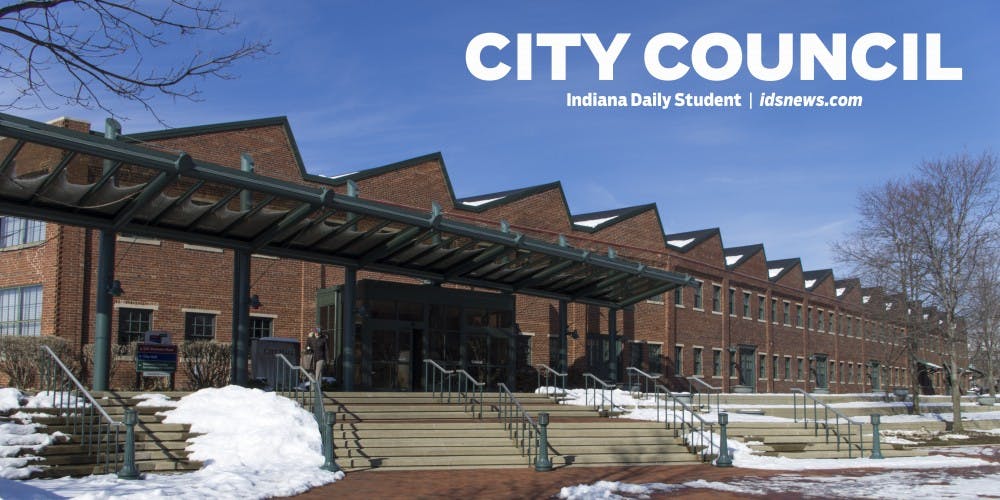The Bloomington city council voted to approve changes to the ordinance that fixed 2019 salaries for city workers, and advanced a proposed ordinance that would establish two new historic districts Wednesday night.
Historic Districts
City council voted to advance an ordinance that would make Maple Heights a conservation district, the first stage in becoming a historic district. The neighborhood was developed out of a need for worker housing when several factories were built in the area in the 1800s and early 1900s.
The land was originally owned by the Blair family, a prominent Presbyterian farming family who came to Indiana in the mid-1800s according the presentation from the Historical Preservation Commission.
Morally against slavery, the Blair family moved to the Bloomington area when Indiana outlawed slavery. They were known to be a highly independent family, growing all their food and making all their clothing themselves.
The neighborhood today contains homes that are over 100 years old and many historical architectural aspects that are only seen in homes built in the late 1800s and early 1900s.
Many Bloomington citizens who live in Maple Heights spoke in support of establishing a conservation district. Several voiced their hope for keeping the houses small and developers away.
“I love living there,” Maple Heights resident Susan Hathaway said. “It’s got a wonderful character that you don’t find much in other neighborhoods.”
Another Bloomington resident spoke against the establishment of the conservation district because of the need for affordable housing and expansion of housing capacity. The resident argued the single-family homes will not be practical for Bloomington’s growing population.
Council member Stephen Volan acknowledged the need for Bloomington to evolve its housing options as its population grows, but also acknowledged the need for home-ownership.
“I think the permanence of a community is something we need to preserve,” Volan said. “We do have to think creatively about this. We can’t deny that housing prices will go up.”
City council also advanced an ordinance that would establish 1175 S. Smith Rd. as a historic district. The house on the property, also known as the Harvey-Nelson House, was built around 1875 and the barn on the property was built around 1930.
The current owners, James and Sally Harvey, raised their children on the property and said they have been approached several times by developers.
Council members were unanimously in favor of establishing the historic district.
“This transcends money,” council member Jim Sims said. “Money moves a lot of things. But this is why we have preservation law, to preserve community values. I just am always thrilled when the human heart and human values transcend money.”
Changes to city workers’ 2019 salaries
Changes to the salary ordinance came from an agreement between the city and the local chapter of the American Federation of State, County and Municipal Employees, the largest trade union of public employees in the United States.
City officials and AFSCME members negotiated contract changes for city workers during a three-day retreat in summer 2018, a different approach from previous years.
“It was a new experience, the three-day retreat,” Steve Robertson, president of the local chapter, said. “We spent three hard days working through it all and I think it went real good.”
The negotiations continued until December 2018 when an agreement was reached.
Changes include job title and pay changes for some positions, and pay increases for certain certifications and workers with night and swing shifts.
Council member Isabel Piedmont-Smith said she was at first worried about the additional costs that the changes would make, but found out from City Controller Jeff Underwood that these costs would not just come from the general city fund but also into city utility funds.
“I felt better about it after communicating with Mr. Underwood that we will have the money to pay for this,” Piedmont-Smith said.
A previous version of this story contained an error. City council voted to advance an ordinance that would establish two historic districts, but did not pass it. The IDS regrets this error.



